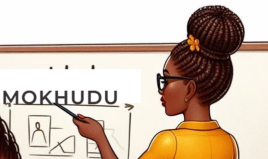Inspiring Innovators: Empowering Students to Become Future Problem-Solvers
Hey there! Ever wonder how today’s students are gearing up to tackle tomorrow’s challenges? With the world shifting at lightning speed, it’s more crucial than ever to equip young minds with the skills they need to navigate the future. Enter the realm of educators who are transforming traditional classrooms into dynamic spaces buzzing with creativity and critical thinking. Imagine a learning environment where technology meets imagination, allowing students to solve real-world problems through innovative approaches. Ready to explore how we can empower the next generation of problem solvers? Let’s dive into some exciting strategies that are shaping the future of education! Curious about culturally responsive teaching methods? Don’t miss out on this article about distance learning strategies.
Leveraging Technology in Education
In today’s digital age, technology is revolutionizing the classroom experience. Let’s explore how creative digital platforms and interactive tools are shaping the future of learning.
Integrating Creative Digital Platforms
Digital platforms are transforming education by offering engaging, interactive learning experiences. These tools foster creativity, problem-solving, and digital literacy skills essential for the 21st century.
Scratch, a visual programming language, exemplifies this trend. It allows students to create their own interactive stories, games, and animations, teaching coding basics while nurturing logical thinking and creativity.
Platforms like Kahoot! and Quizlet gamify learning, turning traditional quizzes into exciting, competitive experiences. This approach makes learning more enjoyable and helps with information retention.
Digital storytelling tools such as Adobe Spark and Storybird enable students to craft multimedia narratives, enhancing their digital literacy and communication skills. These platforms offer a creative outlet while reinforcing learning objectives.
Exploring Interactive Educational Tools
Interactive educational tools are reshaping student engagement by offering immersive, personalized learning experiences. These technologies cater to diverse learning styles and provide immediate feedback.
Virtual and augmented reality technologies transport students to historical events or inside the human body, offering unparalleled immersive learning experiences. This article explores the potential of VR in education.
AI-powered adaptive learning platforms tailor educational content to individual student needs. These systems identify areas for improvement and adjust the curriculum accordingly, ensuring personalized learning paths.
Collaborative tools like Google Workspace for Education facilitate group projects and develop crucial teamwork and communication skills. These platforms prepare students for the collaborative nature of modern workplaces.
Encouraging Experiential Learning
Experiential learning takes education beyond textbooks, allowing students to engage with real-world situations and natural environments. This approach makes learning tangible and memorable.
Hands-On Real-World Activities
Hands-on activities bridge the gap between theory and practice, allowing students to apply classroom knowledge to real-world scenarios. This approach enhances understanding and develops practical skills.
In physics classes, building and launching model rockets can demonstrate principles of motion and aerodynamics. This project-based learning not only reinforces theoretical concepts but also promotes teamwork and problem-solving skills.
Biology students can benefit from creating and maintaining a school garden. This hands-on experience provides insights into plant life cycles, ecosystems, and sustainable farming practices.
Business classes can organize school marketplaces, allowing students to create and sell products. This practical experience introduces concepts of entrepreneurship, marketing, and financial literacy in a tangible way.
Outdoor Learning Adventures
Outdoor learning experiences offer unique opportunities for students to connect with nature and apply classroom knowledge in real-world settings. This article highlights the importance of outdoor learning.
Nature walks and field trips can explore local ecosystems and geology. These excursions can integrate multiple subjects, from science to art, encouraging interdisciplinary thinking.
Outdoor team-building activities foster social skills and community spirit. These can range from group challenges to conservation projects, promoting collaboration and environmental awareness.
Astronomy nights can transform science into an exciting adventure, allowing students to observe celestial bodies firsthand. This hands-on approach can spark curiosity and inspire a love for STEM subjects.
Fostering Critical Thinking Skills
Developing critical thinking skills is crucial for preparing students to tackle complex real-world problems. Let’s explore how storytelling and role-playing can cultivate these essential skills.
Storytelling as a Learning Tool
Storytelling is a powerful educational tool that makes complex ideas more accessible and memorable. It helps students analyze and understand intricate concepts by presenting them in relatable narratives.
In history classes, storytelling brings historical events to life. Instead of memorizing dates, students can explore the motivations and experiences of historical figures, gaining a deeper understanding of past events.
Science fiction stories can introduce scientific concepts and encourage students to consider the ethical implications and potential impacts of scientific discoveries.
Mathematical concepts can be embedded in stories, making abstract ideas more tangible and relatable. This article discusses innovative approaches to teaching math.
Role-Playing for Perspective Shift
Role-playing activities allow students to step into different perspectives, fostering empathy and enhancing critical thinking. This approach helps students gain deeper insights and improve decision-making skills.
In social studies, students can assume the roles of historical figures or leaders, debating various viewpoints to gain a richer understanding of historical events and societal issues.
Language classes can use role-play to simulate real-world conversations, enhancing both language proficiency and cultural awareness. This immersive approach makes language learning more engaging and practical.
Science classes can conduct ethical debates with students representing different stakeholders. This resource provides question stems to promote critical thinking in science. Such exercises enrich students’ understanding of complex scientific issues and their societal implications.



Pingback: 100mg sildenafil tablets